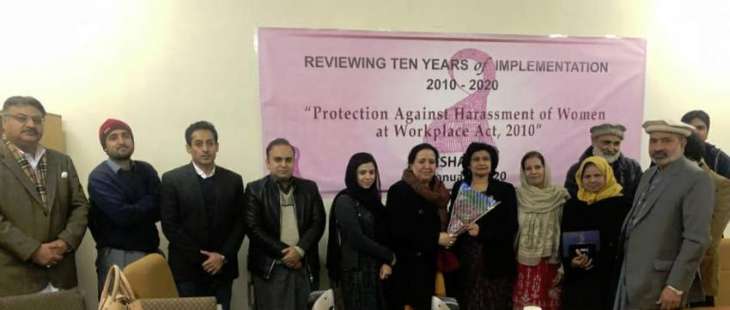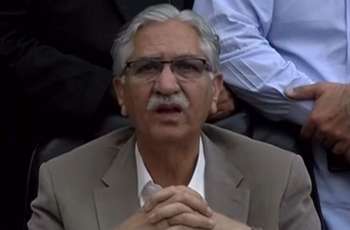A consultation to review anti sexual harassment legislation was organized by Mehergarh: A Center for Learning in Peshawar today, on 3rd January 2020
Peshawar (Pakistan Point News - 4th Jan, 2020) A consultation to review anti sexual harassment legislation was organized by Mehergarh: A Center for Learning in Peshawar today, on 3rd January 2020. Mehergarh is holding a series of such review consultation in all provinces that will lead up to a major event to consolidate the learning of implementation. Mehergarh has been leading the implementation of the anti-sexual harassment legislation since it was passed in 2010.
The consultation invited Provincial Ombudsperson Rakhshanda Naz, representatives of three universities, two Banks, civil society members and representatives of the lawyers and journalists fraternity. The consultation was held at Social Welfare, Special Education & Women Empowerment Department that has been working on the implementation of this law through the province since 2010. The agenda of the consultation was to collect evidence of implementation and views on the changes that people have witnessed over the last ten years. Participants were asked to share their achievements; discuss what strategies have worked; the challenges that they faced and how to address them in the future, in the context of this law.
In 2000, a movement of AASHA began in Pakistan to raise awareness on the issue of sexual harassment and assist the government and private sector to create a society free of sexual harassment. As a result of this movement, anti-sexual harassment legislation was passed in 2010, for which Pakistan has the credit to be the first country in South Asia to have a special law on the issue. 2020 will mark as 10 years of implementation of anti-sexual harassment legislation in Pakistan.
Provincial Ombudsperson for Protection Against Harassment of Women at Workplace, Rakhshanda Naz shared the details of all the work she has done in collaboration with government departments and civil society members, since her appointment in January of 2019. She has also revived the Provincial Implementation Watch Committee and started using it to facilitate the implementation of this law. She also engaged District law officers so that she could work through them and they could send her cases from their districts. The ombudsperson said that trainings are conducted for Inquiry Committee Members of different organizations to improve their understanding to handle cases of harassment with confidentiality within their organizations. She also said that in 2019 her office was facilitating compliance, but in 2020, they will start fining organizations for non-compliance.
The Vice Chancellor of Srahad University, Dr. Salim Ur Rehman said, “We have a very good and trained committee in our university, but we still need to focus more on encouraging our students to report harassment cases because we know that sexual harassment happens everywhere but people are still reluctant to report these cases”. Dr. Huma Javed of Peshawar University said that their Inquiry Committee is doing a good job of handling cases, but we need more than one committee in big universities to tackle the issue of harassment more effectively. Ms. Khurshid Bano, executive director of Da Hawwa Lur said that even though we have done a lot of work in the last ten years we need to continue educating individuals and organizations on the issue and how to properly and effectively use this law to improve our working environment.
At the end of the consultation, Executive Director of Mehergarh, Maliha Husain, who also presided this consultation, said that this is the only law I know of, which is being implemented so effectively throughout the country. She also said that with the help of everyone’s participation in this review process we will be able to come up with even better strategies of continuing the implementation process.




